You’re investing in mesh WiFi for seamless coverage, but you can’t ignore the security risks that come with expanding your network’s reach. While traditional routers offer basic protection, mesh systems introduce unique vulnerabilities that hackers actively exploit. The five security features we’ve analyzed reveal stark differences in how well these systems actually protect your data, and some popular brands fall surprisingly short in critical areas.
WPA3 Encryption and Network Authentication Protocols
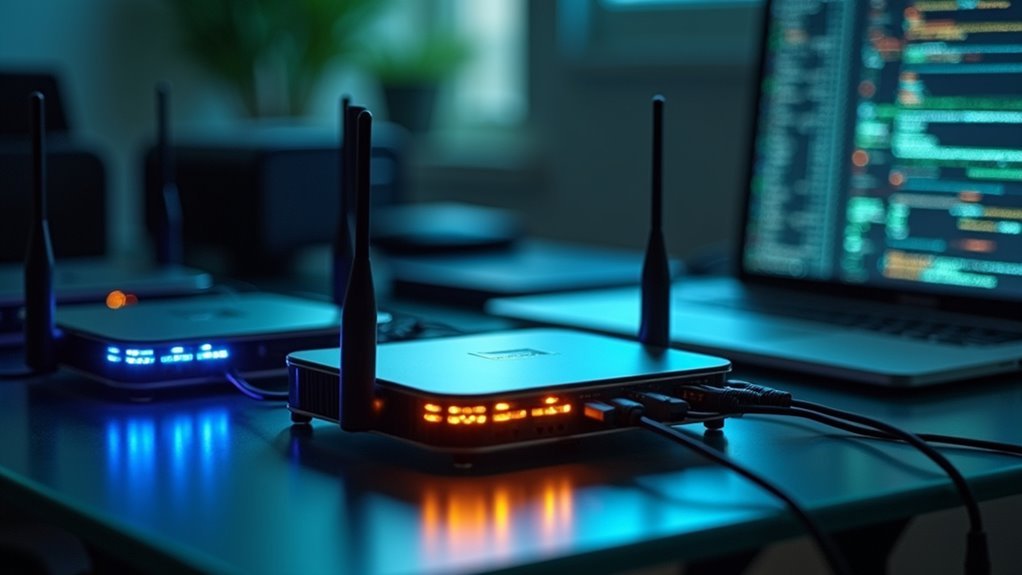
When securing your mesh WiFi network, WPA3 encryption stands as the most advanced protection available, delivering particularly stronger defenses against cyber threats than previous protocols.
This latest Wi-Fi security standard incorporates Simultaneous Authentication of Equals (SAE), which prevents hackers from exploiting captured authentication handshakes during password attacks. You’ll benefit from enhanced data protection through 192-bit encryption, surpassing WPA2’s 128-bit standard for superior security.
WPA3 also transforms public networks through Opportunistic Wireless Encryption, encrypting your data even without password requirements.
The protocol maintains backward compatibility with existing devices while encouraging adoption of stronger authentication methods. These advanced protocols guarantee your mesh networks resist password guessing attacks more effectively, providing thorough security for both private and public Wi-Fi environments.
Built-in Firewall Protection and Intrusion Detection
Beyond encryption protocols, your mesh WiFi system’s built-in firewall serves as a critical first line of defense, creating a protective barrier between your internal network and external internet threats.
This built-in firewall protection actively blocks unauthorized access attempts and filters malicious traffic before it reaches your devices.
Modern intrusion detection systems complement firewall capabilities by continuously monitoring network traffic for suspicious activity. These security features work together to prevent data breaches and protect your personal information from cybercriminals.
Intrusion detection systems actively monitor your network traffic, identifying suspicious behavior patterns to prevent cybercriminals from accessing your personal data.
When combined with WPA3 encryption, they create multiple layers of network security.
Advanced mesh systems enhance protection through automatic firmware updates that patch vulnerabilities in real-time.
This proactive approach guarantees your security features remain effective against evolving threats, maintaining robust defense mechanisms.
Automatic Security Updates and Firmware Management
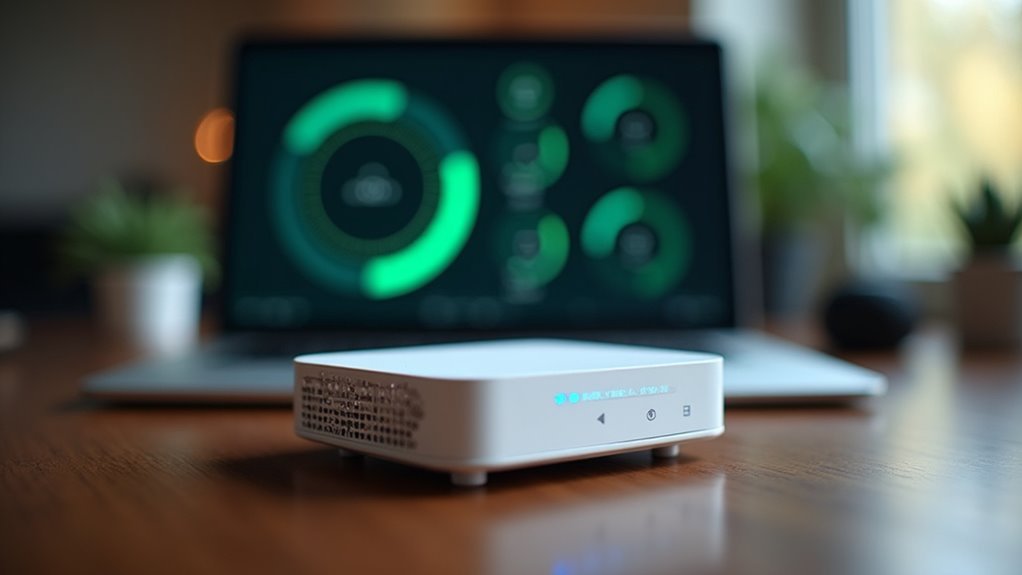
While firewalls and intrusion detection provide immediate threat protection, your mesh system’s automatic security updates serve as its long-term defense strategy. These updates guarantee your mesh Wi-Fi systems receive prompt patches against emerging vulnerabilities without manual intervention.
Modern systems like TP-Link Deco BE63 and Eero 7 offer streamlined firmware management through their platforms. You’ll want a centralized app that simplifies update processes and maintains network security effortlessly.
Beyond protection, firmware updates deliver performance enhancement and new features with each release. When selecting your mesh system, prioritize devices supporting WPA3 security protocol, which provides superior encryption compared to older standards.
This combination of automatic updates and advanced security protocols creates a robust defense framework that adapts to evolving threats while improving your network’s overall functionality.
Guest Network Isolation and Access Controls
How effectively can you protect your main network from temporary visitors and untrusted devices? Guest network isolation creates a separate Wi-Fi network that prevents guests from accessing your main network and trusted devices.
You’ll maintain robust network security by implementing access controls that allow or block specific devices, ensuring only authorized connections.
Most mesh systems offer customizable guest network settings where you can establish time limits and bandwidth restrictions to preserve performance for primary users.
Your guests won’t access shared resources like printers or file systems, reducing potential data breaches.
Many systems include a user-friendly app enabling remote management, so you can control guest access even when you’re away from home, providing convenient security management.
VPN Support and Secure Remote Access Features
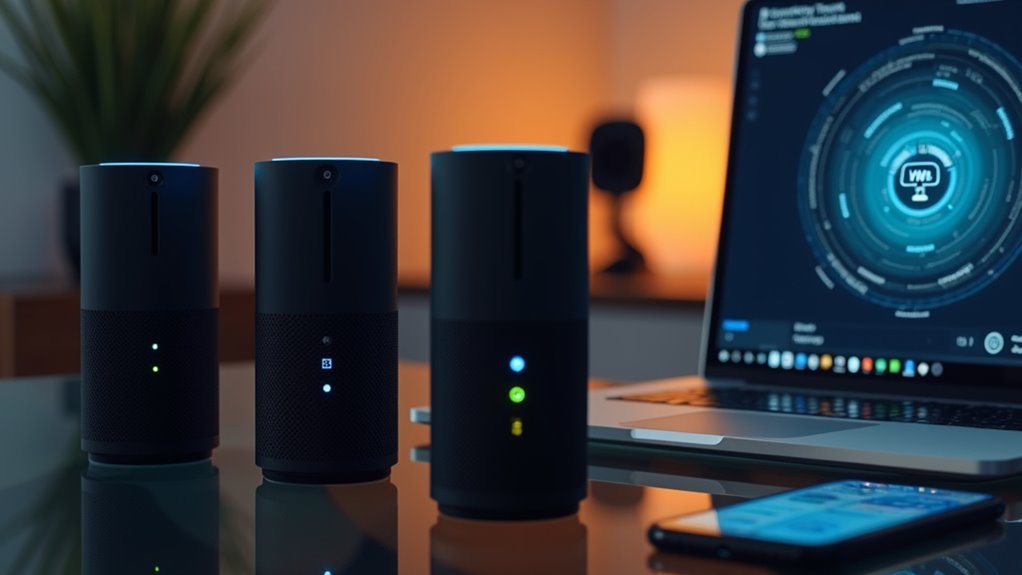
When you need secure access to your home network from remote locations, VPN support becomes a critical feature in modern mesh systems.
Leading options like Asus ZenWiFi XT8 and TP-Link Deco series provide built-in VPN capabilities, creating encrypted connections that protect your data from cyber threats.
These systems support popular VPN protocols, giving you flexibility in choosing secure remote access solutions.
Integrated security software enhances your user experience by offering:
- Peace of mind – Monitor and control your children’s internet usage remotely through parental controls
- Ultimate convenience – Manage network settings and connected devices from anywhere via mobile apps
- Bulletproof protection – Safeguard sensitive personal data with enterprise-grade encryption
Modern mesh systems transform remote access into a seamless, secure experience that keeps your family protected.
Frequently Asked Questions
Is Mesh Wifi More Secure?
Yes, mesh WiFi is generally more secure than traditional routers. You’ll get advanced WPA3 encryption, automatic security updates, unified protection across devices, and no single failure point that attackers can easily target.
What Is a Major Disadvantage of a Mesh Network?
You’ll face higher costs as a major disadvantage, since quality mesh systems often exceed $100. The TP-Link Deco BE63 costs $400, making mesh networks considerably more expensive than traditional routers.
What Is the Most Reliable Mesh Wifi System?
You’ll find the Asus ZenWiFi BQ16 Pro is the most reliable mesh system overall, offering Wi-Fi 7 support and extensive coverage for large homes, though it’s priced at $949.99.
What Must Be Avoided in a Mesh Network?
You mustn’t use outdated WEP security protocols or keep default passwords unchanged. Don’t enable WPS features, as they’re vulnerable to attacks. Avoid connecting unsecured devices that’ll compromise your entire network’s safety.

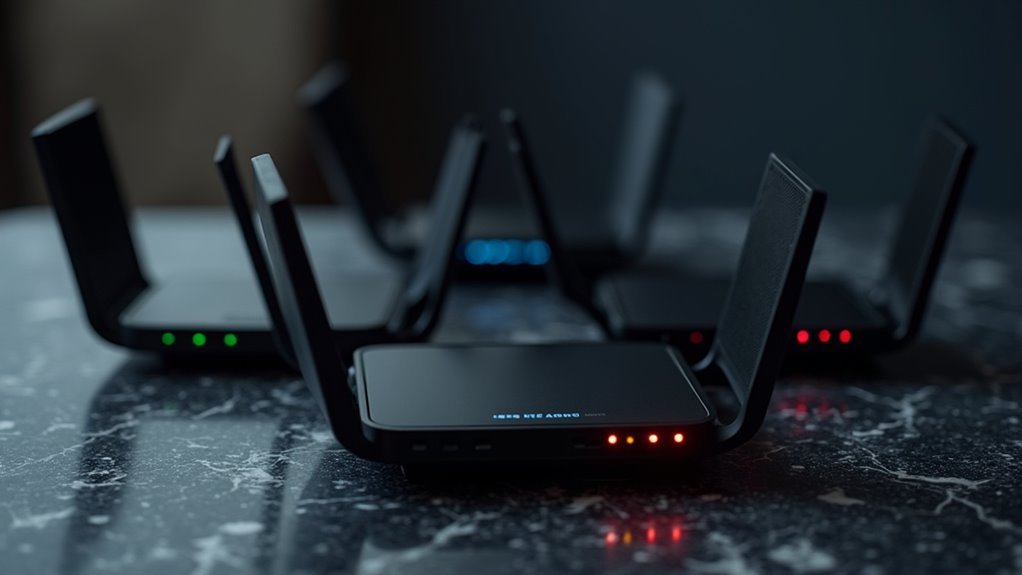
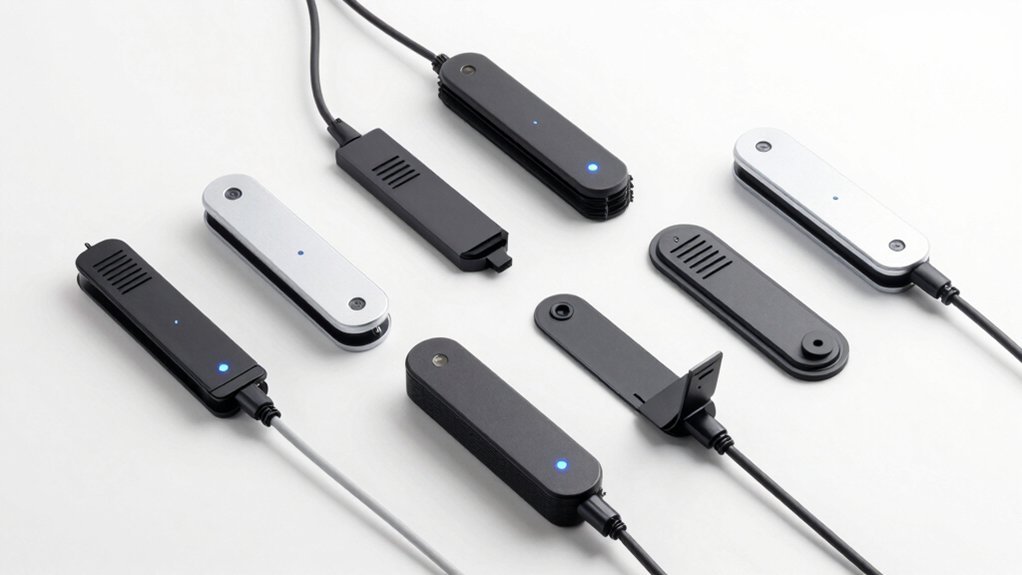

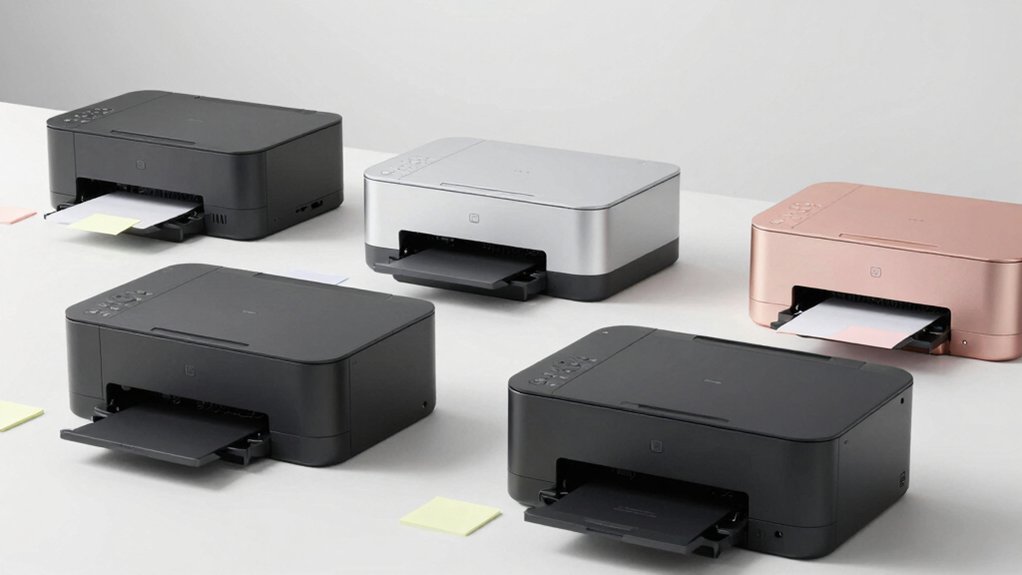
Leave a Reply